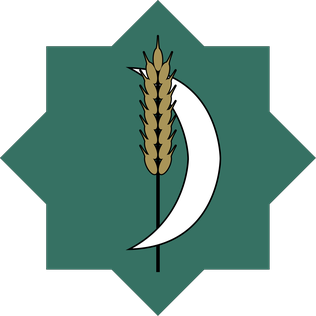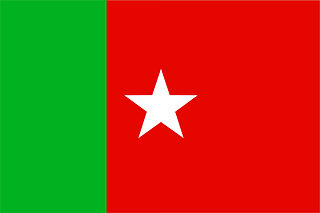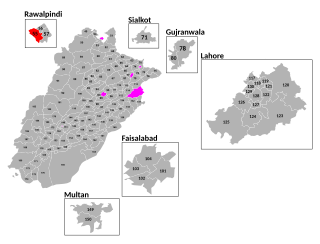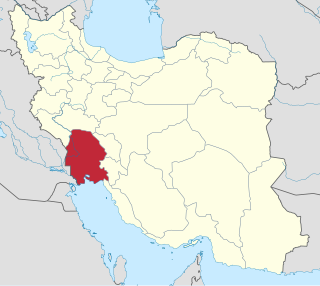The Barisan Alternatif was a coalition of Malaysian opposition parties, formed as a counterweight to the ruling Barisan Nasional. Disbanded after the 2004 general elections, all 4 former component parties of BA have formed a new coalition, Pakatan Rakyat, following the 2008 general elections.
The Respect Party was a left-wing to far-left socialist political party active in the United Kingdom between 2004 and 2016. At the height of its success in 2007, the party had one Member of Parliament (MP) in the House of Commons and nineteen councillors in local government.

The Islamic Party of Britain is a defunct political party in the United Kingdom that was active from its formation in 1989 until 2006. The IPB was opposed to both capitalism and communism. David Musa Pidcock, a Sheffield man who converted from Roman Catholicism to Islam while working as an engineer in Saudi Arabia, founded and led the party. The IPB published a quarterly magazine entitled Common Sense.

The All India Majlis-e-Ittehadul Muslimeen is an Indian political party based primarily in the old city of Hyderabad, It is also a significant political party in the Indian States of Telangana, Maharashtra, Uttar Pradesh, Tamil Nadu and Bihar.
Islami Jatiya Oikya Front was a short-lived political alliance in Bangladesh. Formed in 2001, it was one of the three principal contenders in that year's parliamentary elections. Led by the Jatiya Party (Ershad), it also included the Islami Shashontantra Andolan (ISA) and three smaller parties.

Awami Muslim League Pakistan is a Pakistani political party formed in June 2008 by Shaikh Rasheed Ahmad. The party tends to have close relations with the Pakistan Tehreek-e-Insaf party.

Social Democratic Party of India, popularly known as SDPI, is an radical Islamist, fundamentalist Indian political party founded on 21 June 2009 in New Delhi. It is the political wing of the Islamic organization Popular Front of India (PFI).

Constitutional Convention elections were held in Iran on 3 and 4 August 1979. The result was a victory for the Islamic Republican Party. There were 10,784,932 votes cast in the elections, marking 51.71% turnout. Of all members elected, 68% were clerics.

Early general elections were held in Jordan on 23 January 2013. Voter turnout was reported to be 56.6%.

NA-55 Rawalpindi-IV is a constituency for the National Assembly of Pakistan.

The 2002 Gujarat Legislative Assembly elections were held in December 2002; they necessitated by the resignation of Chief Minister Narendra Modi and the dissolution of the legislative assembly in July 2002, 8 months before its term was due to expire. Modi resigned due to widespread allegations that he had taken insufficient action to prevent the riots that took place a few months earlier. The Bharatiya Janata Party was led by Modi, with the Indian National Congress being the chief opposition.

Provincial elections were held in British India in January 1946 to elect members of the legislative councils of the Indian provinces. The consummation of British rule in India were the 1945/1946 elections. As minor political parties were eliminated, the political scene became restricted to the Indian National Congress and the Muslim League who were more antagonised than ever. The Congress, in a repeat of the 1937 elections, won 90 percent of the general non-Muslim seats while the Muslim League won the majority of Muslim seats (87%) in the provinces. Nevertheless, the All India Muslim League verified its claim to be the sole representative of Muslim India. The election laid the path to Pakistan.

Elections to the Legislative Assembly of the Indian state of Hyderabad were held and Sri Burgula Rama Krishna Rao took oath as First Chief Minister of Hyderabad State on 6 March 1952. 564 candidates competed for the 175 seats in the Assembly. There were 33 two-member constituencies and 109 constituencies single-member constituencies.
Legislative elections were held in East Bengal between 8 and 12 March 1954, the first since Pakistan became an independent country in 1947. The opposition United Front led by the Awami League and Krishak Sramik Party won a landslide victory with 223 of the 309 seats. The Muslim League Chief Minister of East Pakistan Nurul Amin was defeated in his own constituency by Khaleque Nawaz Khan by over 7,000 votes, with all the Muslim League ministers losing their seats.

Provincial elections were held in the Pakistani province of Khyber Pakhtunkhwa's constituencies belonging to areas previously known as the Federally Administered Tribal Areas (FATA) on 20 July 2019. After the election, the new members joined the already elected members from the rest of the province to complete the formation of 11th Provincial Assembly of Khyber Pakhtunkhwa.

On 3 August 1979, Constitutional Convention election was held in West Azerbaijan Province constituency with plurality-at-large voting format in order to decide three seats for the Assembly for the Final Review of the Constitution.

On 3 August 1979, a Constitutional Convention election was held in Khuzestan province constituency with plurality-at-large voting format in order to decide four seats for the Assembly for the Final Review of the Constitution.

On 3 August 1979, a Constitutional Convention election was held in Fars province constituency with plurality-at-large voting format in order to decide four seats for the Assembly for the Final Review of the Constitution.
On 3 August 1979, a Constitutional Convention election was held in East Azerbaijan Province with plurality-at-large voting format in order to decide all six seats for the Assembly for the Final Review of the Constitution.
On 3 August 1979, a Constitutional Convention election was held in Zanjan Province with plurality-at-large voting format in order to decide two seats for the Assembly for the Final Review of the Constitution.














